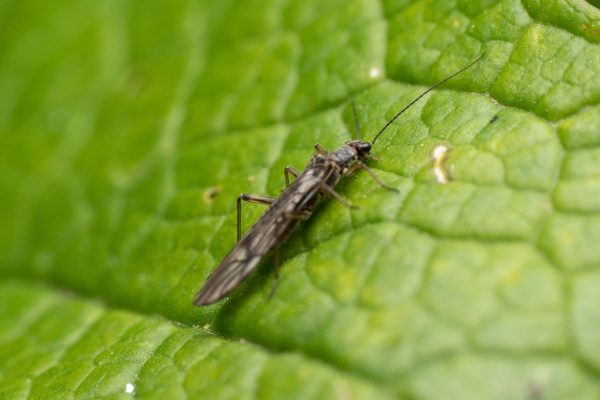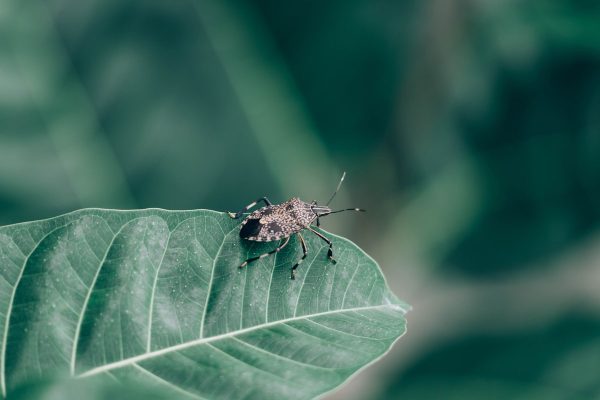Wolf spiders look intimidating with their large frame and hairy body. However, they are fascinating creatures that can be useful, so it's no surprise that some people keep them as pets. If you've spotted a wolf spider around and are curious about their species, you must wonder how long they can survive. So, we have researched answers for you!
The lifespan of a wolf spider varies on gender: Male wolf spiders live for around a year, while female spiders can live for several years especially if they have access to a consistent supply of food and water. However, without food, wolf spiders can only survive three weeks and only one week without water.
Having a wolf spider around has both advantages and disadvantages, but it certainly is not for a weak stomach. Wolf spiders can initially scare people, but what could their effect be in our lives if we treat them not as pests? If you want to learn more about wolf spiders, keep reading below.
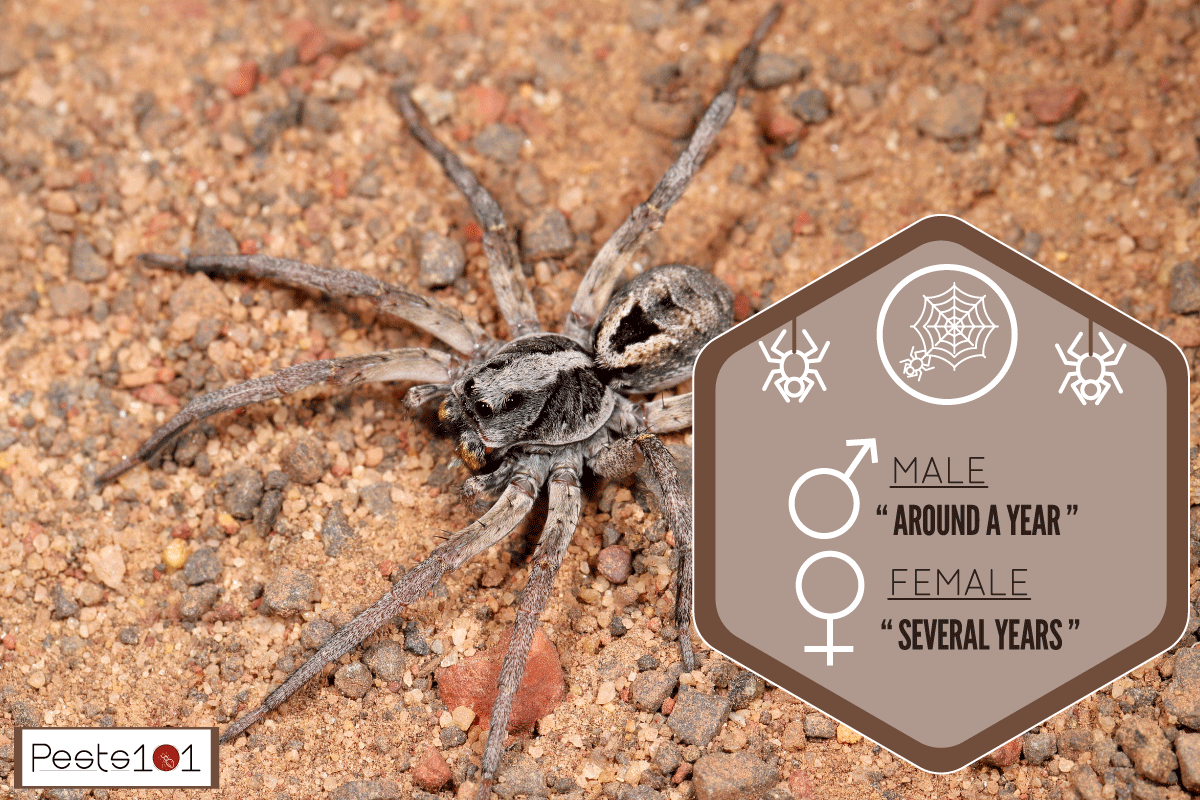
Wolf Spiders: An Overview
Wolf spiders got their name from chasing their prey--like a wolf--instead of catching it with its web as most spiders do. They have hairy bodies and usually come in brown, gray, black, and tan. They can effectively hide because of their stripes, allowing them to blend in grassy surroundings.
Wolf spiders also have distinct four eyes which they utilize during the night when they are most active. Their extraordinary vision gives them an "eyeshine" that is easily detectable during nighttime.
Since they are solitary animals, they have developed their senses to avoid potential predators. For example, they can sense vibrations on the ground to avoid lizards, birds, and wasps which help the wolf spiders make their escape before they get trapped.
As predators themselves, wolf spiders typically hunt for amphibians and reptiles. They trap their prey by jumping on them and rolling over before injecting them with venom.
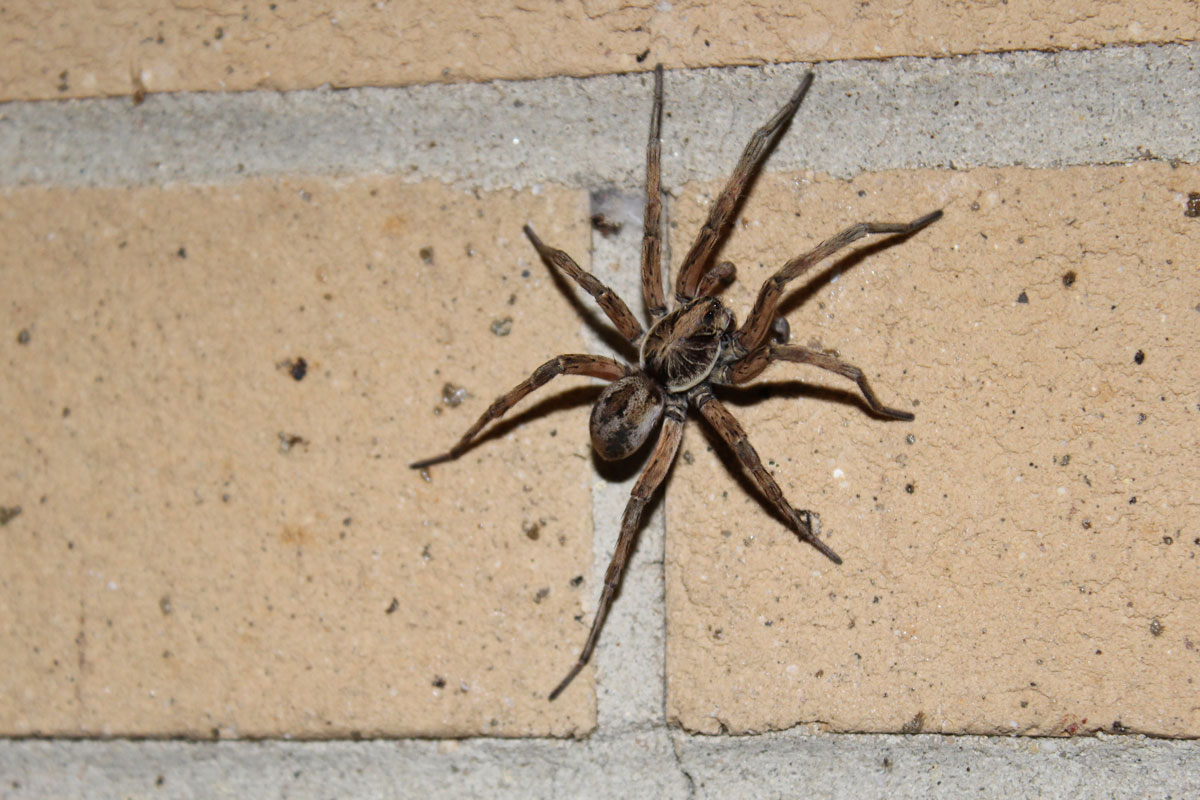
Wolf Spiders Vs. Tarantulas
People often confuse wolf spiders with tarantulas, but they have very distinct characteristics. For example, tarantulas are much bigger and their hairs are longer than wolf spiders' hairs.
Other most obvious differences are that wolf spiders are much lighter than tarantulas, and tarantulas don't have identifiable patterns in their body, unlike wolf spiders who have stripes.
Are wolf spiders dangerous?
"Dangerous" is subjective. Some people may observe some behaviors of wolf spiders and find them dangerous, while others will not. Technically, wolf spiders aren't deadly to humans, but all spiders including wolf spiders can bite human skin.
However, remember that wolf spiders don't bite unless they feel threatened. So if you can handle them gently and carefully, you rarely have to worry about incurring spider bites.
Their bite is not particularly poisonous, but it can still make someone feel uncomfortable symptoms. Often, wolf spider bites will only give you an itchy bump that should go away within a few days.
At worst, a person who is allergic to wolf spiders can experience worse symptoms. These include dizziness, a red line indicating the first signs of blood infection, swelling, and breathing difficulties. Seek immediate medical attention if you experience these.
How do you treat spider bites?
If a wolf spider bites you, it is best to seek medical attention immediately to be safe. However, if the bite doesn't seem serious, applying first aid can lessen the symptoms and prevent them from progressing.
Here is how to treat spider bites:
- Wash the bite with soap and water.
- Apply an over-the-counter antibiotic treatment. Repeat three times a day until the wound heals.
- Press the wound with a cold compress for 15 minutes to reduce swelling.
- Avoid scratching the area if it is itchy; it may worsen the wound. Apply antihistamine to the affected area to remove the itchy sensation.
Do wolf spiders eat other insects?
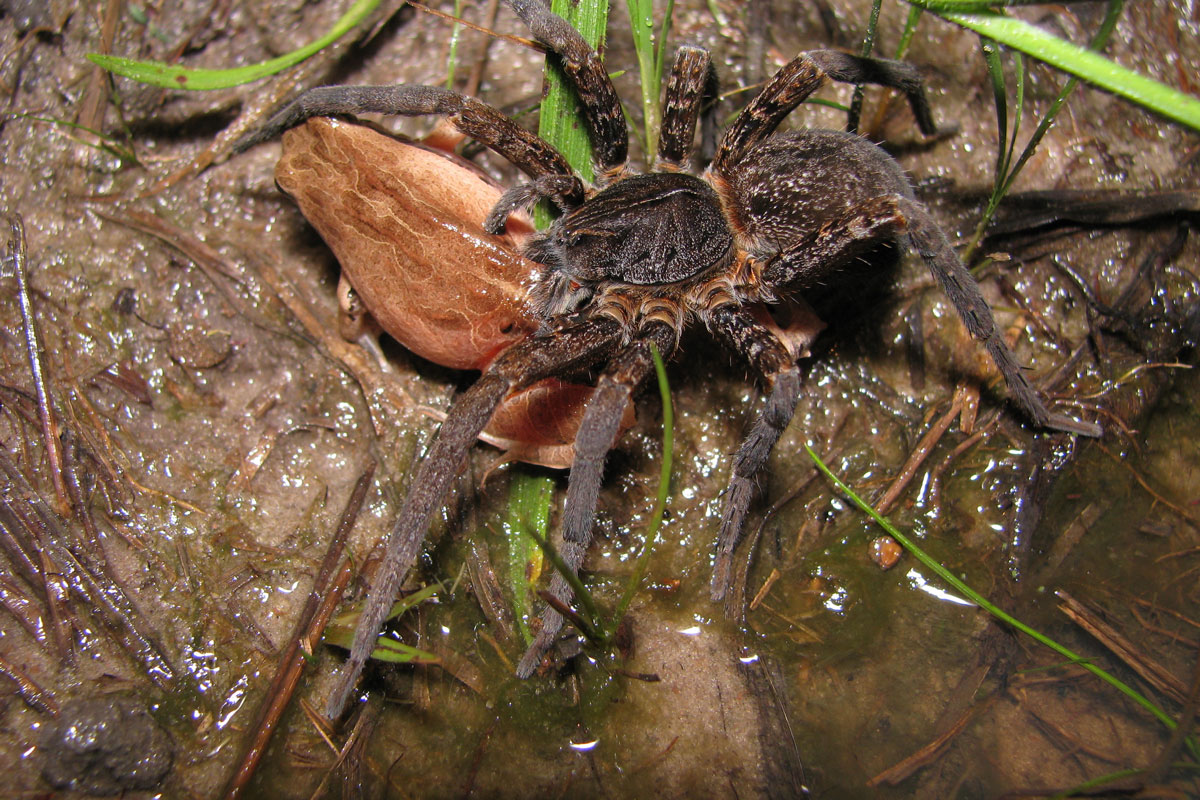
Wolf spiders are carnivorous by nature. They mostly eat ground-dwelling insects such as ants, worms, and roaches. Wolf spiders can even eat other spiders if they need to. Bigger female spiders with sizes ranging around three inches can eat small reptiles and amphibians such as toads, lizards, and frogs.
In the wild, the wolf spider diet is much more diverse. They eat whatever is most abundant in an area and they don't resort to plants and vegetables. They eat insect eggs, dead insects, and other small reptiles.
If you're thinking of keeping a wolf spider for yourself, their diet is relatively easy to find.
They eat pretty much anything that crawls such as grasshopper worms, beetles, pill bugs, aphids, millipedes, and centipedes. This will make them ideal pest killers for plant-eating insects, which is mostly the reason that some people keep them as pets.
You will need to feed a common spider wolf every two days, but larger female spiders need to be fed every day. You can keep the spiders in an area with abundant flies or insects to prevent other insects from entering your home.
Where do wolf spiders live?
Wolf spiders can survive virtually anywhere. They usually stay on the ground wherever they go; they can be found on rocky or concrete areas, mountaintops, meadows, and grasslands. They also thrive in wetlands, rainforests, and even deserts.
Because of this, they can easily adapt to domestic environments such as suburban lawns and homes. In rural areas, they frequent areas where most plant-eating insects live. There, most farmers utilize them to eat aphids and other pests.
Wolf spiders are abundant in warm areas located in Missouri, Texas, and California. This is because other insects like to gather in warm areas, so wolf spiders can hunt a lot in these places.
If you don't keep them as pets, wolf spiders can still find a way to stay in your home. They will typically hide in dark areas such as broom closets, boxes, dark crevices, basement corners, and under baseboards. Often, spiders just accidentally wander into the home while following another insect.
During the autumn or winter season though, spiders will start seeking shelter. They will target homes that house other insects so they will have something to feed on during the cold season. This is necessary for their survival since they do not hibernate, and can only go for three weeks without food.
How to Avoid Wolf Spiders

Despite their agricultural benefits, wolf spiders may still not be welcome in your home--after all, they don't have a good reputation and you'd probably rather avoid getting bitten by them especially if you're allergic to spiders in general.
If you don't want to be anywhere near these creepy crawlers, there are effective ways you can seal off your home so they can't enter.
- Vacuum the corners that can potentially hide insects.
- Sweep piles of leaves and rotting firewood. This will prevent not only spiders but other insects from infesting your home.
- Caulk and seal small holes and cracks around your walls
- Avoid opening windows during their peak season
- Avoid clutter such as boxes and unused drawers.
What to do when a wolf spider is in your home?
However, despite efforts to protect the home, spiders can still find their way inside. Here is what to do when you spot a wolf spider hanging around your home.
- Do not squash them. It will release its youngs from its back, worsening the infestation.
- Avoid threatening the spider as it may attack and bite you.
- As much as possible do not kill a spider since they can be agriculturally beneficial.
- Create a trap for the spider and release them outdoors.
How to Trap a Spider
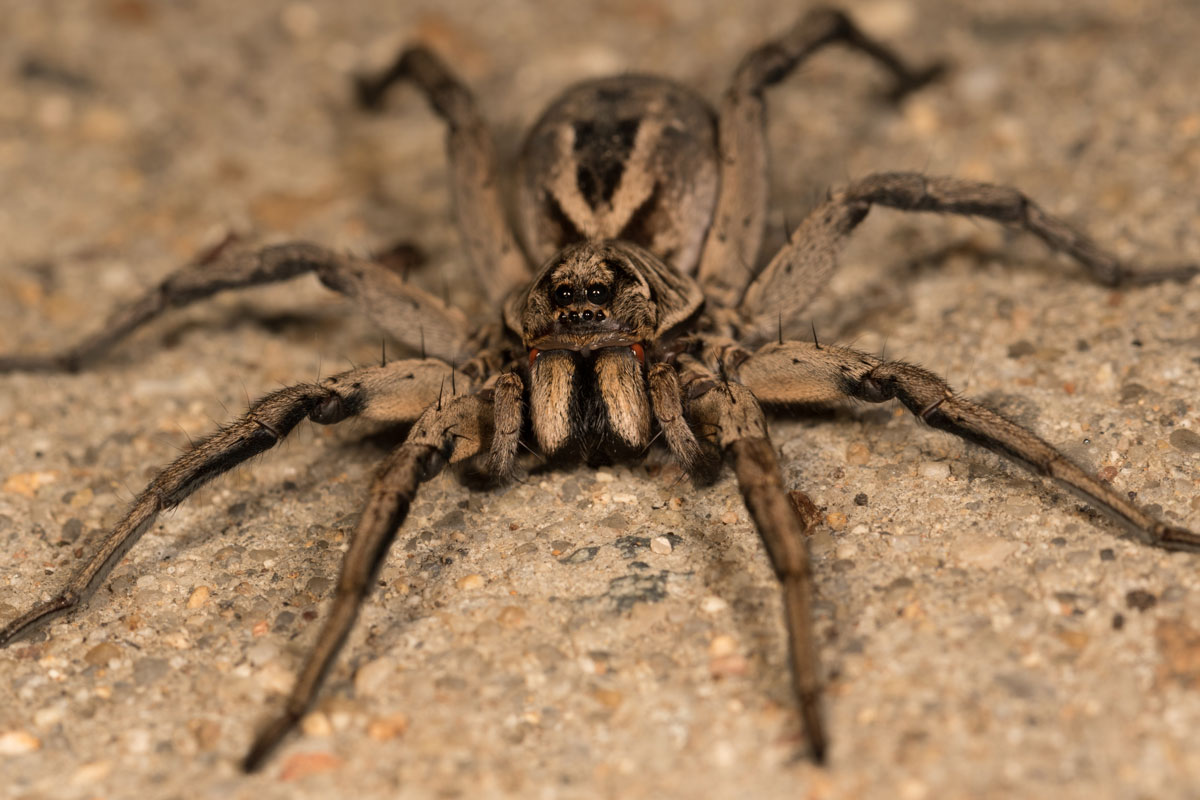
Trapping and releasing a spider is a safer and more environmentally beneficial way to get rid of spiders around your home. Here is how you can do it.
- Grab a transparent cup and a piece of cardboard or paper.
- Pry the spider into the cardboard gently and trap it with the clear cup.
- Slowly move the spider outdoors and set it free.
Final Thoughts
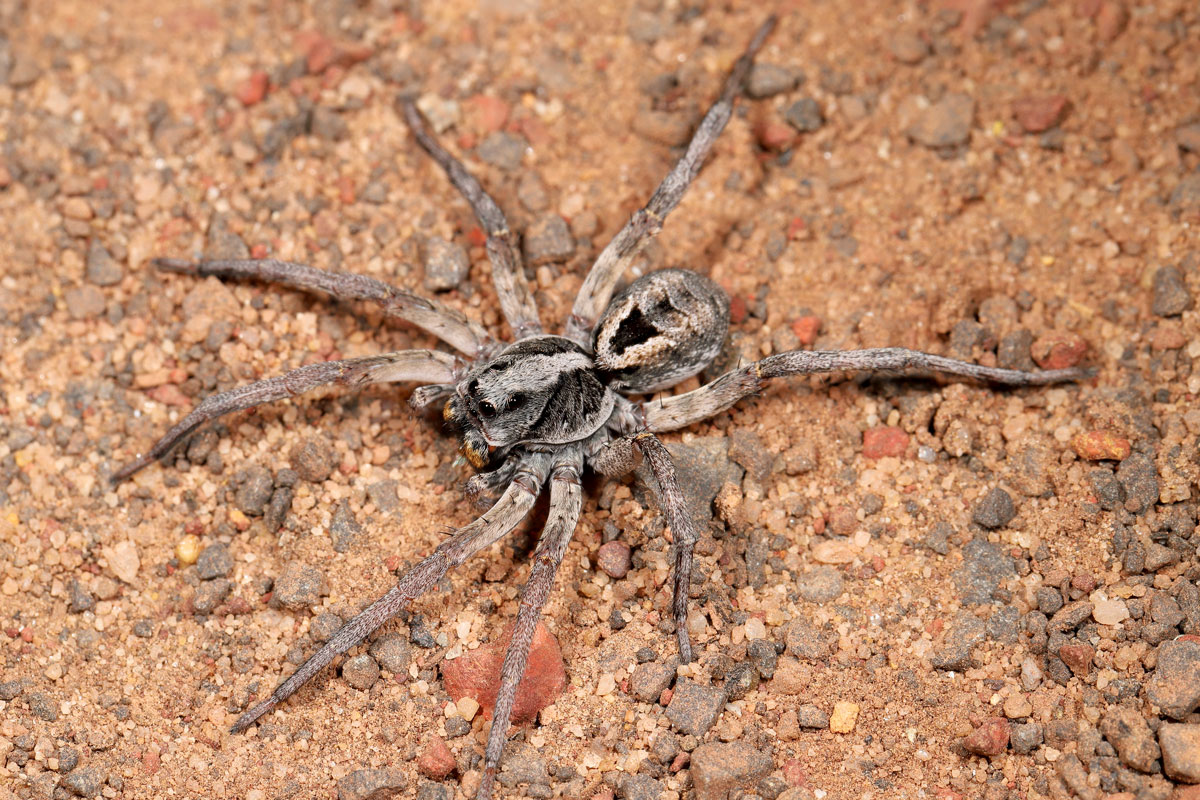
Wolf spiders can either be treated as pests or benefactors, but it is important to not kill them. If you keep them as a pet, make sure to feed them so they can benefit your indoor plants. If you plan on getting rid of them, let them escape peacefully since they are still important to the ecosystem.
If you enjoyed this article, check out "6 Types Of Black Ants In The USA" or "3 Types Of Neem Oil [And Common Brands]" to learn more about pest handling.

